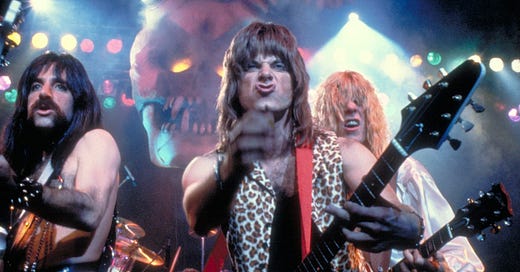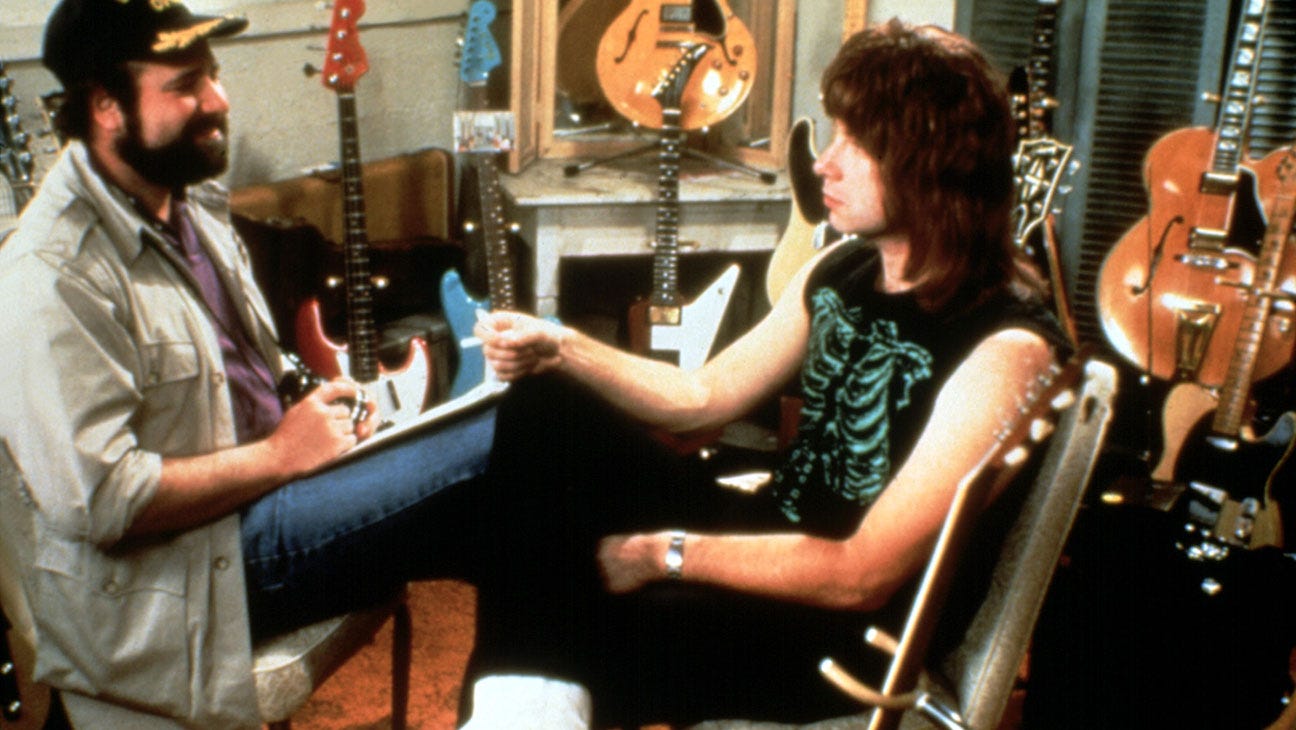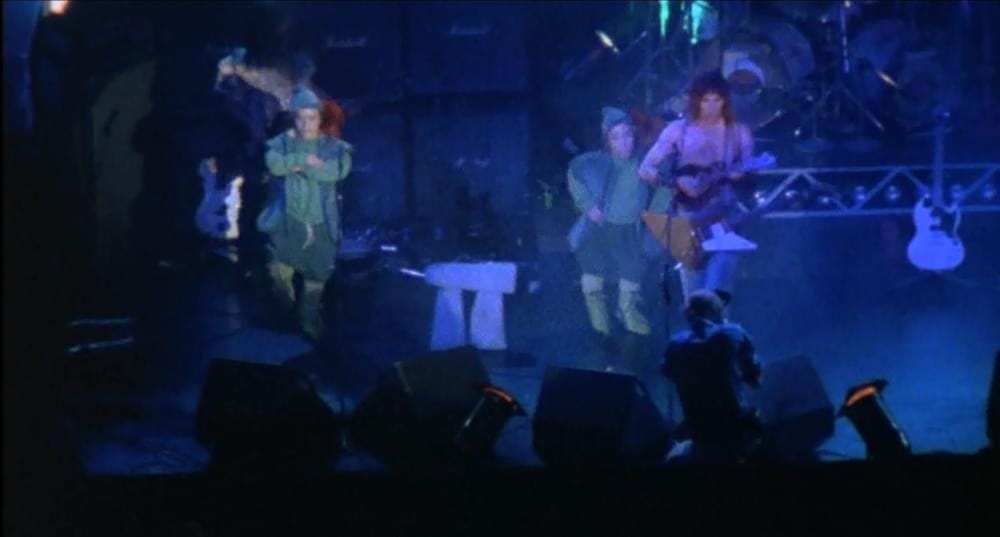The FFFEYIBA Project—1984
”I believe virtually everything I read, and I think that is what makes me more of a selective human than someone who doesn't believe anything.”
For a reminder on the purpose (and rules) of the project, see this post.
HM #1: Nausicaä of the Valley of the Wind
I know that Lupin III: The Castle of Cagliostro was Miyazaki’s first feature film, but this one has always felt like his actual first to me. Despite its popularity (and the impact it had on other animators), Castle wasn’t his own material, and it has a manic goofiness to it that seems out of step with his subsequent tone and style (at least to me). It doesn’t really touch on the themes of nature vs. man and nature vs. technology (and flying!) that became such hallmarks of his subsequent work. Nausicaä, on the other hand, was doubly his, coming from a manga he created before turning it into a film. Also, it was his first collaboration with Joe Hisaishi, who I consider the si
ngle most important and indispensable collaborator Miyazaki has ever had; in fact, he’s pretty much a borderline co-creator, in my mind. I can’t (at this moment) think of a director-composer combination that is more vital to each’s creative success. Neither Hisaishi’s nor Miyazaki’s work here feels quite finished (especially when compared to the excellence of their later stuff), but it is certainly a sign of wonderful things to come.
HM #2: Blood Simple
Speaking of firsts, here’s another: the first feature film the Coen Brothers ever made. It’s one where you can only marvel at the confidence and cohesion of the vision, wondering how some are so impossibly “ready out of the box.” While their visual style got more polished (and their performers, better), their writing and directing is as good here as it would (or could) ever be. The level of sustained cinematic excellence from the Coens is astonishing to me. They’re always “doing their own thing,” and I don’t always like what that thing is, but they hit their directorial stride from the moment they began making films. Even their misfires—Burn After Reading and Intolerable Cruelty come to mind, or The Ladykillers, and some might add Hail, Caeser! to that list (though not I!)—feel like they succeeded in doing what they wanted to do. Eccentric filmmakers making personal films. And being happy with the results.
HM #3: Once Upon a Time in America
Sergio Leone, fresh off the wild success of the “Man with No Name Trilogy” (and the very public failure of his “Once Upon a Time in the West” film), was Robert Evans’s first choice to direct The Godfather. He turned it down, because he wanted to make this film instead. When Coppola was subsequently offered the job, he initially declined, as well, for fear of glorifying the Mafia and violence. I’m not entirely convinced that Coppola managed to avoid his early concerns, but I can say with certitude that Leone’s film does no such glorifying. It’s a haunting, harrowing, brutal look at “a group of Jewish ghetto youths who rise to prominence as Jewish gangsters in New York City's world of organized crime.” It was the last film Leone made. It was cut to ribbons by Paramount’s editors for its American release. It was then, unsurprisingly, cut to ribbons by critics who were seeing a severely stunted version of Leone’s vision. And it’s pretty unforgettable, for better and worse.
You know what else is unforgettable? Ennio Morricone’s score, which played a much larger role in the film’s creation than is typical: “…the score was more or less complete by 1975–6, seven years before a foot of film was shot, which must be a record. Leone would play recordings on the set not only to set the mood but also to set the pace of the movements of the actors and the camera. ‘You’d arguably have to reach back to Prokofiev—with his pre-written score to Eisenstein’s Alexander Nevsky (1938)—to find such a clear example of music dictating cinematic form, a fact of which Morricone was justly proud,’ writes Tim Robey.”
And now, away we go…
1984’s Selection: This is Spinal Tap, by Rob Reiner
I don’t much like mockumentaries. They’re too broad; too silly. And often, too mean.
But I love this one.
I’m really not sure why, to be honest. It’s certainly broad, but its characters are so absurdly ridiculous that they become sincere, somehow. And then, they become lovable. I can’t understand how we get there—can’t figure out how the film succeeds in making that impossible transition—but I just know that it works.
It’s also Spine #12 from Criterion:
Rob Reiner's directorial debut has developed into a cult phenomenon. The film that invented the "rockumentary" has now outlasted most of the bands it mocked. Following the ill-fated American comeback tour of an aging heavy-metal group, this film has joined the ranks of the greatest comedies ever made.
Edgar Wright, whose films are those rare comedies that I actually love and who includes this one on his Top 10 Films list, probably says it best: “I don’t know if Reiner, Guest, McKean, and Shearer could have ever known back in 1984 quite how far-reaching the influence of this movie would be. …I cannot overestimate its position as an unassailable comedy classic.”
An unassailable comedy classic. Seems about right.
It’s interesting to me that most of the folks who list the film on their Criterion Top 10 are writers or musicians (or indie filmmakers), not high-profile directors or producers. On the one hand, that’s not surprising, since I’m not entirely sure it’s got much to offer, cinematically. Also, I’d guess not everyone is equally comfortable with the deception necessary to make this sort of thing work. (We can’t all be Welles, right?)
On the other hand, the fact that musicians, in particular, respond well to it suggests that the film’s creators manage to capture something accurate about the “heavy-metal scene” they’re skewering. Something both insightful and endearing to those who are in (or close to) the very think Reiner and Co. are examining. And I think that’s probably why they manage to move from (surface) mockery to (deep) affection.







